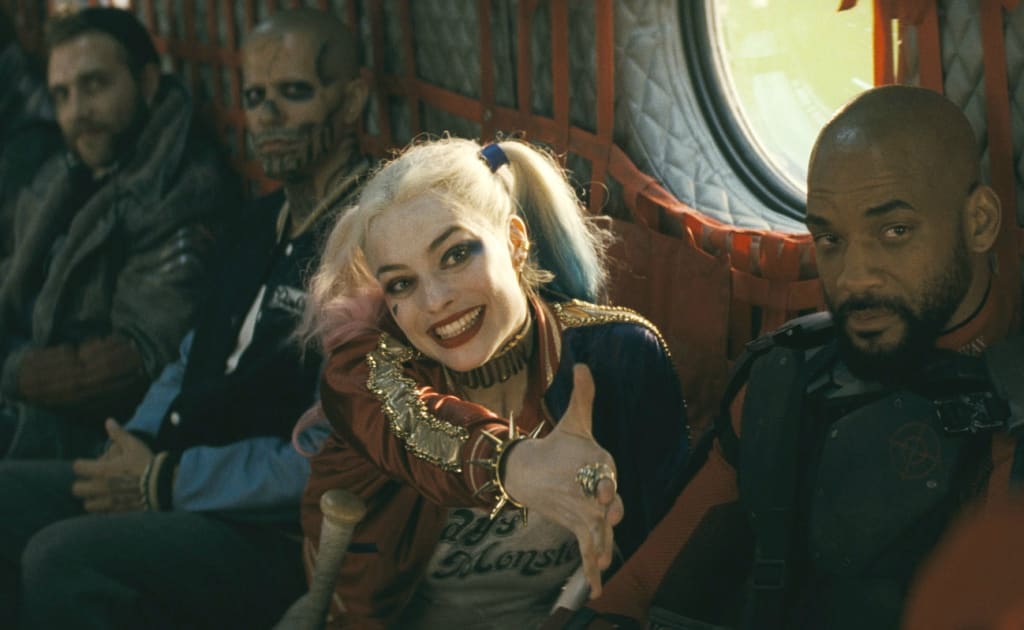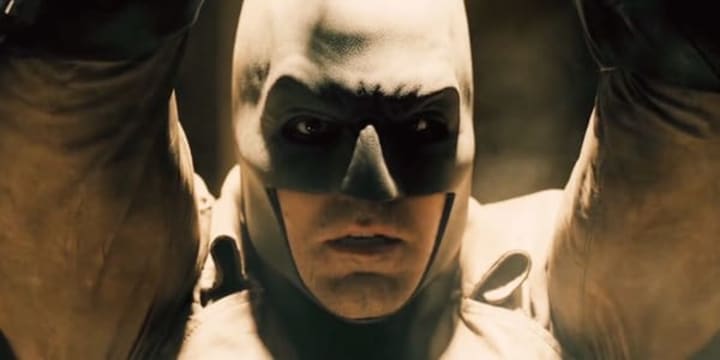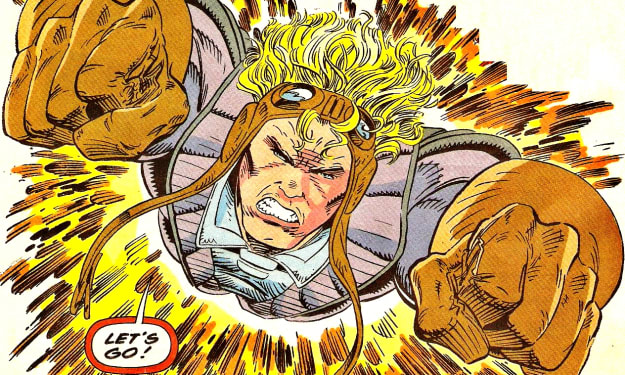
Hopes were high for Suicide Squad. The first weekend was record-breaking, helped massively by a late review embargo that ensured negative reviews didn't dent the tremendous marketing (remember those trailers?). Over the course of the next week, Suicide Squad continued to break records - for the best Tuesday take, and even for the best Thursday take. The real test, though, was always going to be the second weekend.
There's always a significant drop between a film's first and second weekend, but Suicide Squad's looks to be huge. According to Deadline, the film dropped a whopping 67% on domestic markets, although it performed better internationally - dropping by 56% globally, a far more impressive figure. It has to be said that this is better than Batman v Superman: Dawn of Justice (which dropped a shocking 81% in its second weekend), but Forbes compared the second weekend performance to Green Lantern, Man of Steel, and X-Men: The Last Stand.
This is becoming a pattern.

Be afraid. Be very afraid. Image: Warner Bros.
The #DCEU seems to be slipping into a dangerous pattern, one that began with 2013's Man of Steel. That film saw its second weekend performance drop by 65%, startling box office analysts; but, to be fair, Superman's outing was facing competition from Monsters University and World War Z. The performance of Batman v Superman: Dawn of Justice was more surprising, given that it had precious little competition. As for Suicide Squad, this film's only real competition was Sausage Fest.
In all three cases, DC movies have followed this pattern:
- A strong marketing approach, to varying degrees of success (#BatmanVSuperman's trailers were extremely controversial, while Suicide Squad's were tremendously popular)
- A late review embargo (usually reflecting a fear of negative reviews; a late review embargo ensures first week performance isn't influenced drastically by the critics)
- When the critics air their views, they're mixed at best, negative at worst
- A strong opening weekend, followed by consistent performance throughout the first week
- A dramatic drop-off come the second weekend, with the film never really getting back on its feet
What does this pattern mean?

The Man of Steel! Image: Warner Bros.
Over on Forbes, Scott Mendelson is of the view that this means the DC fans are excited about their films, and are turning out - but that they all see the film the moment it hits theaters. This stance, however, implies that the general cinemagoers simply aren't interested.
Perhaps the general cinemagoers are influenced by the negative reviews. Perhaps word-of-mouth is critical, and persuades them not to turn out. Or perhaps, for all I hate the phrase, DC's films really are simply "for the fans," and aren't intended to gain traction with wider audiences.
Before we get too critical, let's face a simple fact: this is working. With all the controversy surrounding Batman V Superman, the film still grossed over $870 million - making it easily the eleventh best-performing superhero film of all time, even when you factor in inflation! (For the record, it's closest competition is 1989's Batman, which - adjusted for inflation - brought in over $799 million. It's not even close.) Suicide Squad's performance has taken the combined DCEU to over $2 billion at the box office - very impressive for three films in!
What's the impact?

Suicide Squad look on in fear. Image: Warner Bros.
Please forgive the comparisons with #Marvel Studios, but the reality is that - right now - nobody is achieving box office success with superheroes like Marvel. Marvel's PG-13 approach has maximized the potential audience, and the company has carefully built a brand around strong characters, great action, and more than a little humor. There's a reason Marvel Studios would never have made Fox's Deadpool; the film would be off-brand. For all that superhero fans may criticize Marvel as being formulaic (I think more than a little unfairly), the films are carefully positioned to reach the maximum audience. What's more, Marvel's continued success clearly indicates people are leaving their films happy; they've seen what they expected to see, they're satisfied with the product, and they'll come back for more.
DC Film, on the other hand, simply doesn't seem to be appealing beyond their natural fanbase. Although there were tonal problems with Batman v Superman, in general the tone has been dark and somber. Large parts of the marketing have been geared toward the natural fanbase - for example, the R-rated Batman v Superman Ultimate Edition. Critics are walking out frustrated, and even fans have to admit that they're not walking out of the cinema having seen what they expected - just how many scenes from the trailers for Suicide Squad wound up on the editing-room floor?
The risk for DC is that, three films into the DC Extended Universe, this can do real damage to the brand. Next year sees Wonder Woman and Justice League, two of the most exciting superhero films since 2012's The Avengers. One is the first superhero film in years to star a female lead, directed by Patty Jenkins, and the first trailer was beautiful. The other is a chance to see DC's greatest superheroes team up on the big screen. These should be some of the greatest, most celebrated superhero films of all time. But - if DC's brand is now strongly associated with "for the fans," negative critical reactions, and second-weekend drop-offs - they may simply not reach the audiences they should.
What's DC doing about this?

The "Rebirth" event shows the way! Image: DC Comics
The controversy over Batman v Superman caused a massive reorganization at DC Film, with popular comic book writer Geoff Johns taking over as President. Johns's vision has already transformed the comics - the wildly successful "Rebirth" initiative is essentially a rejection of the 'dark and gritty' DC of the "New 52," and reads like a repudiation of Zack Snyder's style and tone as well. The reality is that next year's DC movies should have a completely different feel to them; there's a strong sense that, come next year, we'll effectively be seeing DC Film attempt to pivot stylistically.
In a sense, then, to criticize DC Film for Suicide Squad is unfair. The film has been released too quickly after Batman v Superman, meaning that any lessons learned were rushed, and poorly implemented. The real test will be next year, when we'll see just what influence Geoff Johns has had on the direction of the DCEU.
Is it too late? Three films into the DCEU, it's entirely possible some audience members won't give DC Film another chance. If that's the case, we can expect this disappointing pattern to be followed by even Wonder Woman and Justice League.
That said, I'm hopeful. I think Wonder Woman could be something quite unique among superhero films, with Gal Gadot as a strong female lead, and a fascinating pseudo-historical wartime backdrop reminiscent of everything I loved about Captain America: The First Avenger. If any film has the potential to break this pattern, it's Wonder Woman.

A breathtaking moment from the trailer. Image: Warner Bros.
Although Suicide Squad's performance is disappointing, the reality is that we superhero fans are in the best of all times. The comics we loved as we grew up are being rendered on the big screen, and have the potential to reach millions of people who've never turned the pages of a comic. There's something magical about that, and my dear hope is that Wonder Woman will lead an entire generation to fall in love with the DCEU.
About the Creator
Tom Bacon
A prolific writer and film fan, Tom has a deep love of the superhero genre.






Comments
There are no comments for this story
Be the first to respond and start the conversation.